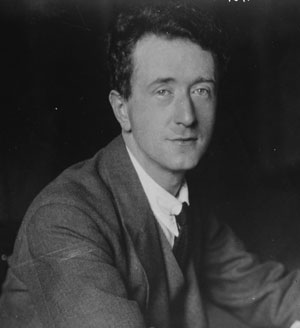By Joseph E.A. Connell Jr

In September 1923 the Irish Free State joined the League of Nations. Led by Minister for External Affairs Desmond FitzGerald and President of the Executive Council W.T. Cosgrave, the Irish delegation travelled to Geneva for the ceremony. The path had been set earlier, with a vote by the first Dáil in April 1919 to seek membership. The League had been founded at the conclusion of the First World War as an intergovernmental organisation with the ambitious objective of maintaining peace through collective security, disarmament and the peaceful settlement of international disputes. While a creature of its time, it also included progressive standards on labour conditions and the treatment of minorities.
Cosgrave’s opening address to the League, on 10 September 1923, graciously placed the Irish Free State among the international community of nations:
‘On behalf of Ireland, one of the oldest and yet one of the youngest nations, and speaking for the Irish government and the Irish delegation, I thank this assembly of the League of Nations for the unanimous courtesy and readiness with which our application to be admitted to membership of the League has been received and approved.
Ireland counts on having no enemy and on harbouring no enmity in the time to come. She counts also on bringing forth fruits worthy of liberty. Si tollis libertatem, tollis dignitatem [If you take away man’s freedom, you take away his dignity]. These are the words of a famous Irishman of the sixth and seventh century. Inscribed on his tomb at Bobbio in Italy, that met our eyes when, a few days ago, a happy conjuncture enabled the members of this Irish delegation to assist at the celebration of the thirteenth centenary of Saint Columbanus, pioneer of Ireland’s moral and intellectual mission among the nations of Western Europe.
We shall return to our own country to take part with our own patriotic people in the enormous work of national construction and consolidation. The kind welcome, the cordial words of understanding that have greeted us here on the part of every nation whose representatives we have met, will not be forgotten. They will cheer and sustain us in that work, and they will remind us, too, that as the life of a man is bettered and fructified beyond measure in the harmonious society of men, so must the life of nations reach a much fuller liberty and a much fuller dignity in the harmonious society of nations.’
Membership of the League also gave the Irish Free State the opportunity to engage at a diplomatic level with a far greater number of states than would otherwise have been the case. At a time when Irish diplomatic relations were confined to Western Europe and North America, the mission in Geneva interacted regularly with those of all member states of the League, the total of which would grow to a high point of 58 prior to its dissolution and subsequent replacement by the United Nations.
Joseph E.A. Connell Jr is the author of The Terror War: the uncomfortable truths of the Irish War of Independence (Eastwood Books, 2022).
